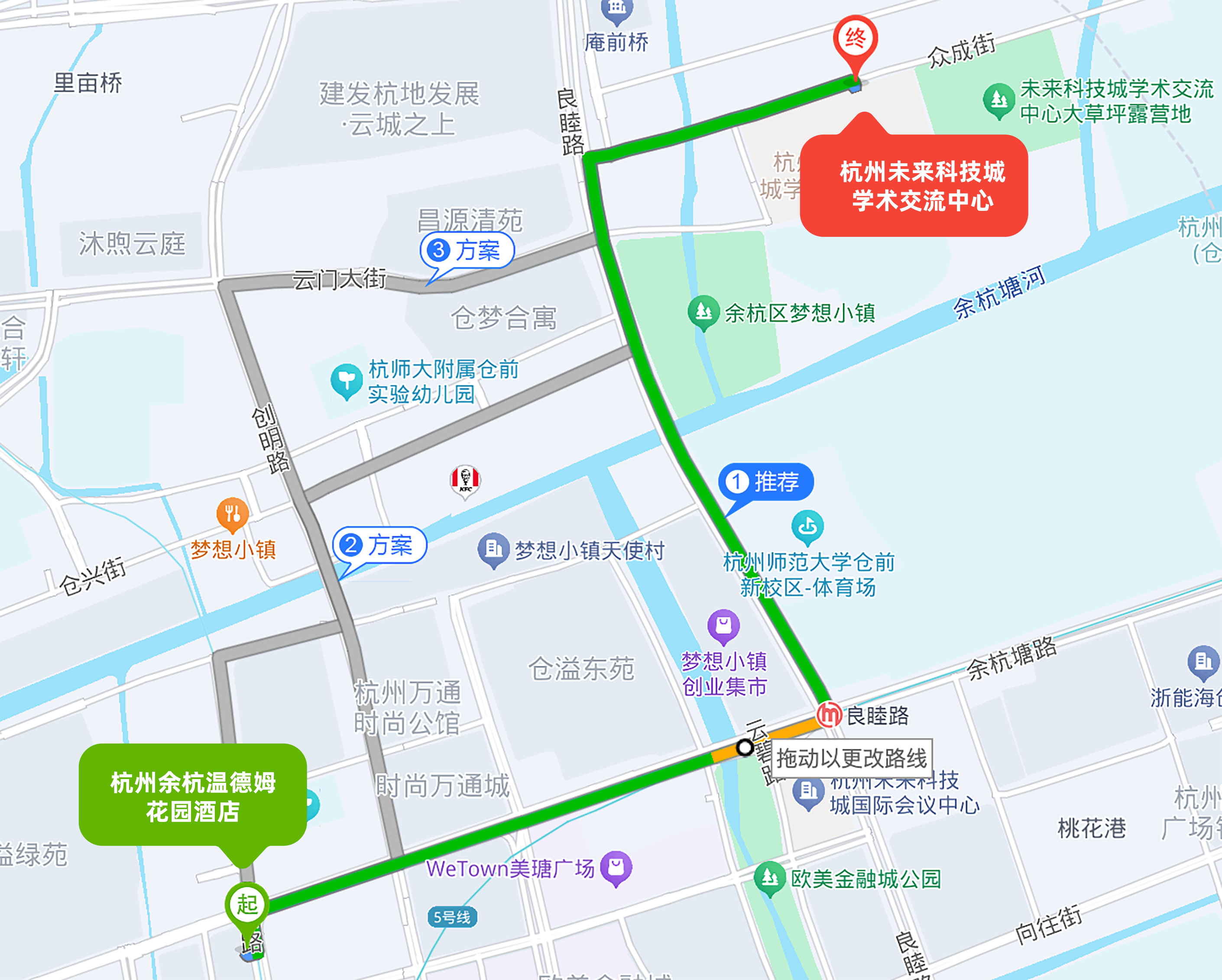
Winner of Turin Award
Winner of Turin Award
Member of NAS
Member of AAAS
Academician of CAS
Dean and Professor of Institute for Interdisciplinary Information Sciences Tsinghua University
Dean and Professor of Institute for Interdisciplinary Information Sciences Tsinghua University CAAI Fellow

Academician of CAE
Professor of Zhejiang University
CAAI Fellow


Academician of Chinese Academy of Engineering
Counsellor of the State Council
Dean of the School of Information Science and Technology at Tsinghua University
Director of Beijing National Research Center for Information Science and Technology
Chairman of CAAI

Director Surrey Institute for People-Centred AI
Director of Centre for Vision
Speech and Signal Processing at the University of Surrey
FREng/FIAPR/ FIET

Fellow of the International Eurasian Academy of Sciences
Chief Scientist of Huawei Consumer BG
and Fellow of IEEE and CAAI

Director of CAAI Professional Committee of Intelligent Service
Professor of Beijing University of Posts and Telecommunications
IEEE/CAAI/CCF Fellow

Vice President of CAAI
Professor at Zhejiang University
Recipient of the National Science Fund for Distinguished Young Scholars
and CAAI Fellow


Secretary-General of CAAI

Deputy Secretary-General of CAAI
Associate Dean of the College of Computer Science and Technology and Qiushi Chair Professor
Zhejiang University

vice-president of IFLYTEK
Executive Dean of AI Research Institute
Deputy Director of the State Key Laboratory of Cognitive Intelligence

Academician of Chinese Academy of Engineering
Counsellor of the State Council
Dean of the School of Information Science and Technology at Tsinghua University
Director of Beijing National Research Center for Information Science and Technology
Chairman of CAAI

Vice President of CAAI
Academician of Chinese Academy of Engineering
CAAI/CIE/CAA/CIC/CSF/IET Fellow

Director Surrey Institute for People-Centred AI
Director of Centre for Vision
Speech and Signal Processing at the University of Surrey
FREng/FIAPR/ FIET

Fellow of the International Eurasian Academy of Sciences
Chief Scientist of Huawei Consumer BG
and Fellow of IEEE and CAAI












































































































































































































































































09:30-10:30
09:30-10:30
09:30-10:30
09:30-10:30
09:30-10:30
09:30-10:30
09:30-10:30
09:30-10:30
10:30-11:00 Reflections on Artificial Intelligence: The Waltz Between Illusion and Reality
11:00-11:30 Frontiers in Intelligent Unmanned Systems
11:30-12:00 People-Centred AI
12:00-12:30 3D/4D Content Creation from Arbitrary Sparse Data
14:00-14:10 Address
14:10-14:15 Launch Ceremony of the “CAAI-Boson” Quantum Computing Application Innovation Fund
14:15-14:50 Panel:Quantum Computing + AI: The Convergence Revolution of the Next-generation Disruptive Technologies
14:50-15:10 Where is Intelligence Going: Large Model and Signal Processing
15:10-15:30 Quantum Information and AI
15:30-15:50 Efficient Quantum Circuits for Machine Learning Activation Functions
15:50-16:10 Quantum computing, optimization and learning
16:10-16:30 The cross-empowerment of artificial intelligence and quantum computing
16:30-16:50 Quantum Artificial Intelligence and Practical Quantum Advantage
16:50-17:10 AI Empowerment Practices in Coherent Optical Quantum Computers
14:00-14:05 Address
14:05-14:30 Discussion on the basic algorithms of perception and cognition and the self-guided parsimonious broad learning systems
14:30-14:55 Autonomous Operation Technologies for Space Unmanned Systems Based on Quantitative Capability Characterization
14:55-15:20 Key Technologies of Intelligent Human-Computer Interaction (HCI) for Early Warnings of Neurological Diseases
15:20-15:45 A Hybrid Approach Integrating Physics-Informed and Data-Driven World Models and Industrial Embodied Intelligence
15:45-16:15 PANEL: Applications of Machine Embodied Interactive Intelligence of Enabling AI to “Live” in the Real World
16:15-16:40 Deep-Sea 3D Embodied Perception Technology and Its Prospects
16:40-17:05 Multimodal Embodied Interaction in Smart Cockpits
17:05-17:30 Long-Horizon Action Planning in Embodied AI Systems
13:30-14:00 Artificial General Intelligence and Law
14:00-14:30 AI in Legal Practice: Current Status
14:30-15:00 Legal Technology in the Era of Large Models
15:00-15:30 The Practice of AI-Empowered Procuratorial Work in Qingyuan City
15:30-16:00 The Shaoxing Model of Digital Procuratorial Reform
16:00-16:30 Reflections and Practices of PKULAW in Digital Rule of Law in the Age of Advanced AI
16:30-17:00 How AI Empowers Legal Service Scenarios
17:00-17:40 PANEL:AI and the Future of Legal Professionals
17:40-17:50 AI Empowered Legal Education Release—Zhejiang University Guanghua Law School Agent Group Release Ceremony
17:50-18:00 Book Launch: Legal Logic and Law and Artificial Intelligence: Digital Prosecution
14:00-14:30 An Approach and Perspective of Large Models in the Field of Oil and Gas Reservoir Reconstruction
14:30-15:00
15:00-15:30 Condition Monitoring and Application of Offshore Electrical Equipment Based on AI Technology
15:30-16:00 A Brief Discussion on Big Data Thinking in Artificial Intelligence
16:00-16:30 Machine Learning Models Integrated with Domain Knowledge and Their Applications
16:30-17:00 Research on the Phase Characteristics of CO2 Injection into High Pour Point Oil and Intelligent Prediction
17:00-17:30 Research and Mine Practices on Intelligent Fracturing Optimization Technologies for Unconventional Reservoirs
14:00-14:30 Intelligent On-orbit Manipulation Technology for Space Flexible Actuated Robots
14:30-15:00 Key Technologies and Verification Platform for Multi-Agent Collaborative Perception
15:00-15:30 Autonomous Flight Control for Bionic Flapping-Wing Robots with Self-Takeoff and High-Agility Manoeuvring
15:30-16:00 Intelligent On-orbit Manipulation Technology for Space Flexible Actuated Robots
16:00-16:30 Design of Trustworthy Intelligent Controllers
16:30-17:00 Intelligent Route-Mimicking Flight Technology for UAVs Based on Multi-Source Sensing Fusion
14:00-14:30 Application of Modern AI Technology in Power Systems and Electricity Markets
14:30-15:00 Computational Intelligence for Challenging Optimization Problems
15:00-15:30 Smart Energy Ecosystem and Collaborative Innovation Models under Dual Carbon Goals
15:30-15:40 Launch Ceromony for the Electricity Trading Large Model
15:40-16:10 Exploration and Practice of Energy Intelligent Agents Based on AI Large Models
16:10-16:40 AI in Power Dispatching and Generation
16:40-17:10 Autonomous Start-Stop Control of Thermal Power Units Based on Neural Network Predictions
14:00-14:30 Large Models Empowering Biomedical Sciences: DeepSeek as an Example
14:30-15:00 Integrative Bioinformatics in Aging and Longevity Research and Prospects
15:00-15:30 AI-Driven Drug Target Discovery and Molecular Generation
15:30-16:00 Multimodal biomedical data fusion analysis
16:00-16:30 Research on Circular RNA Aptamers for Targeted Therapy of Cancer
16:30-17:00 AI-Powered Proteomics: Accelerating Discovery and Translational Applications
17:00-17:30 Applications of AI in Organoid Culture and Detection
17:30-18:00 New methodologies for identifying QTNs, QTN-by-environment interactions and epistasis in GWAS
14:00-14:20
14:20-14:40 Enhancing the Software-Hardware Coupling of Domestic Computing Power
14:50-15:20 Air Platform Collaboration and Human-Machine Interaction
15:20-15:50
15:50-16:20 From Artificial Intelligence to Embodied Intelligence
16:20-16:50 Trusted Cloud Computing Empowering Full-Lifecycle Secure Applications of Large Models
16:50-17:20 System Science Perspectives on the Reliability of AI Computing Power Infrastructure
14:00-14:10 Address and Publicity
14:10-14:30 Innovation Paradigms and Investment Opportunities in Low-Altitude Economy
14:30-16:40 Low-Altitude Economy Project Showcase
16:40-17:20 Panel:Application Scenarios and Investment Prospects of Low-Altitude Economy
14:00-14:10 Address
14:10-14:40 Technical Overview of MindSpore Version 2.6
14:40-15:10 Multimodal-Driven Visual Content Generation and Editing Based on MindSpore
15:10-15:40 MindSpore-based Basic Model for Solving Scientific Computing Equation
15:40-16:10 Accelerating Scientific Innovation through Open-Source Ascend CATLASS
16:10-16:40 UAV Large Vision Model based on CANN Platform
16:40-17:10 Optimization Practice for Convolutional Computing with Ascending CANN—Exploring the Strategies of Input Feature Maps Segmentation
09:00-09:30 Online Learning of Data Streams with Concept Drift
09:30-10:00 Data-Driven Optimization Assisted by Large and Small Models
10:00-10:30 Analysis and Enhancement of Multilingual Processing Capabilities for Large Models
10:30-11:00 GeoGPT: An Open-Source Large Language Model System for Earth Scientists
11:00-11:30 A Preliminary Exploration of World Models: Reconstruction, Generation, and Inference
11:30-12:00 The AIC Algorithm Competition: A Catalyst for Top Talent Cultivation
09:00-09:30 Adhering to the Scientific Nature of Artificial Intelligence Education
09:30-10:00 Opportunities and Challenges of K-12 Education in the AI Era
10:00-10:30 Science Education in the AI Era
10:30-11:00 Innovative Talent Cultivation in Basic Education Empowered by Embodied Intelligence Technologies
11:00-11:30 Tech Youth in the Era of Artificial Intelligence
14:00-14:30 Using “DeepSeek” as an Engine to Revolutionize School Education Paradigms
14:30-15:00 From AI Literacy to AI+: Exploration and Practice of Curriculum System Construction in Primary and Secondary Schools
15:00-15:30 AI + Basic Education: Exploring and Practicing Innovative Pathways in Schools
15:30-16:00 Building Research-Practice Communities to Advance AI-Empowered Education
16:00-16:30 AI4S Enlightenment Education: Interdisciplinary Learning in the AI Era
09:00-09:20 Wicked Bizarre Semiconductor Physics of Sensor Security
09:20-09:40 Building a Domestic Open-Source Development Ecosystem for Cybersecurity-Specific Programming
09:40-10:00 Embodied Intelligence Security in UAVs
10:00-10:20 Cross-domain Security Analysis and Protection of Embodied Intelligence
10:20-10:40 The Evolving Attack Surfaces of Denial-of-Service against Serverless Functions in the Cloud
10:40-11:00 Trustworthy Embodied Intelligence
11:00-11:20 caling Law and Scalable Data of Embodied Intelligence
11:20-12:20 Panel: The Sword of Damocles for Embodied Intelligence Security in Cross-domain Dialogue
09:30-09:40 Address
09:40-10:00 Harnessing Technology for Good and Aesthetics: Storytelling Through Beauty
10:00-10:20 Information Communication Design and Digital Media
10:20-10:40 Aesthetic Understanding and Cognitive Benchmark Construction in Music Artificial Intelligence
10:40-11:00 Technical Trends and Practical Implementation of Large Models
11:00-11:20 Trusted Data Spaces + Controllable Large Models: Ushering in the iPC Era
11:20-11:40 On the Development Trends of Large Models and Their Applications in Weibo
09:00-09:10 Address
09:10-09:30 Multi-disciplinary Innovation in Systems Engineering Empowered by Artificial Intelligence
09:30-09:50 Application of Intelligent Rehabilitation Technology in Medical and Elderly Care
09:50-10:10 The Remote Intelligent Development of Tumor Ablation Medicine
10:10-10:30 Collaborative Protection Mechanisms for Information Security in Multi-Domain Intelligent System Engineering
10:30-10:50 Intelligent Systems Engineering: A "New Infrastructure War" for the Future
10:50-11:10 Integrated Operation and Maintenance for Equipment Health Conto: Prescriptive O&M Technology
11:10-11:30 Autonomous cooperative motion planning of unmanned air-ground vehicles for multi-point dynamic aggregation tasks
11:30-11:50 Originality is the Soul: Consolidating the Foundation for the Development of Artificial Intelligence
09:00-09:30 Neuroelectronics for Efficient BCI-based Closed-loop Neuromodulation
09:30-10:00 Neuromodulation 3.0: Brain-Apparatus Communication Modulation
10:00-10:30 Neuromodulation 3.0: Brain-Apparatus Communication Modulation
10:30-11:00 Adaptive invasive brain-computer interface for personalized treatment of refractory depression
11:00-11:30 Synchronized Photoelectric Brain Activity Imaging Technology and Its Applications
11:30-12:00 Practical Applications and Challenges of Non-Invasive Brain-Computer Interface Technology in Commercial Settings
09:00-09:30 Development of Athletic GPT and Applications of AI in Competitive Sports.
09:30-10:00 Key Technologies and Applications of Information Service Platform for Scientific Fitness-for-All Activities
10:00-10:30 The Transformative Power of AI: Revolutionizing SPORT
10:30-11:00 AI Technology Empowering Intelligent Sports Equipment and Health Industry
11:00-11:30 Exploration and Practice of Competitive Sports Digitalization in the AI Era
11:30-12:00 AI Empowering Intelligent Sports Equipment and Comprehensive Health Industry
09:00-09:10 Address
09:10-09:40 Open-World Multimodal Large Models: Research and Applications
09:40-10:10 End-to-End Autonomous Driving and World Models
10:10-10:40 Humanoid Robots: Current Situation Analysis and Future Projections
10:40-11:10 InternVideo Series: Large-Scale Video Understanding Models
11:10-11:40 Embodied Intelligence: Technological Trends
11:40-12:10 Federated Learning-Driven Multimodal Large Models: Collaboration Optimization and Privacy Challenges Under Data Silos
09:00-09:20
09:20-09:40
09:40-10:00
10:00-10:20
10:20-10:40
10:40-11:00
11:00-11:20
11:20-11:40
11:40-12:00
14:00-14:30 Research on Closed-Loop Decision Making for Robots Based on Vision Language Models (VLMs)
14:30-15:00 Win-Win Cooperation in the Era of Large Models: Exploration of 3D Scene Generation Technology Based on Layered Scene Graphs
15:00-15:30 Operational Optimization and Machine Learning Issues and Discussions of Mobile Robots in Intelligent Warehousing and Flexible Manufacturing
15:30-16:00 Shude’s Practice in Empowering Education and Teaching through Human-Computer Interaction and Coordination with Educational Intelligent Agents
16:00-16:30 Pre-Research and Applications of Artificial Intelligence in the field of Construction
16:30-17:00 Applications of Affective Computing and Interaction Technology in Empowering Industry Mental Health Scenarios
14:00-14:30
14:30-15:00 3D Light Field Video Communication Technology for Multi-User Co-Viewing
15:00-15:30 Intrinsic Image Decomposition Method for Virtual-Real Consistency Editing
15:30-16:00 Exploration of Multimodal Collaborative Interaction Technology
16:00-16:30 Real-time Holographic Camera for Hologram Acquisition of Real 3D Scenes
16:30-17:00 Codec Avatars: towards achieving metric telepresence
14:00-14:30 Embodied Intelligence: From Automated to Autonomous Robots
14:30-15:00 Embodied Intelligent Manipulation: Forging New Productivity
15:00-15:30 Legged Embodied Intelligence of Humanoid Robots and Intelligence Levels
15:30-16:00 Digital Gene: Towards General Embodied World Models
16:00-16:30 Data Driven Large Embodied Intelligence Model
16:30-17:00 Development and Prospect of Robot Embodied Intelligence
14:00-14:20 AI Motion Capture and Practice
14:20-14:40 Computational Imaging and Applications in Consumer Healthcare
14:40-15:00 Running Large Model Development and Its Application in the R&D of Running Shoe Products
15:00-15:20
15:20-15:40 Marketing 3.0 Era: Commercialization Practice of AI Interactive Marketing
15:40-16:00 Exercise-based Rehabilitation for Osteoarthritis Patients
16:00-16:20 Innovation and Practice in AI Interdisciplinary Studies
16:20-16:40 Exploring AI Application Scenarios in the Interdisciplinary Innovation of Sports Science, Medicine, and Engineering
16:40-17:00 Intelligent Imaging Technology: From Multidimensional Analysis to Multi-scenario Applications
17:00-17:20 JD Health Medical AI Technology and Commercialization
14:00-14:30 Reflections on AI Teaching and Research
14:30-15:00 General AI Education: From Computational Thinking to Intelligent Thinking
15:00-15:30 iFLYTEK SPARK LLM: Latest Developments and Innovative Applications in Education
15:30-16:00 From Introduction to AI to General AI Education
16:00-16:30 Design of an Integrated Undergraduate-Graduate General AI Education Program
16:30-17:00 Exploration and Practices of Tiered General AI Education
14:00-14:20 Address
14:20-14:40 Informatics: The Underlying Competency for AI Talents—A Global Perspective on Future Talent Cultivation
14:40-15:00 Exploring Diversified Talent Cultivation in the Era of Artificial Intelligence
15:00-15:20 Universities and Disciplines: Interdisciplinary AI Programs and Talent Cultivation in Higher Education
15:20-15:40 Human-Machine Collaboration in the AI Era: Attribution Analysis of Student Performance
15:40-16:00 AI Education Ecology and Resource Sharing in Group-run School Management
16:00-16:20 Empowerment and Challenges by AI: A Double-Edged Sword for Education and Teaching in International Schools
16:20-16:40 New Practices in AI-Empowered Education:The Primary School Affiliated to the Institute of Education Sciences Taking Action
16:40-17:10 Panel:Technology Decentralization and New Infrastructure for AI Education—Responsibilities and Breakthroughs of Tech Enterprises
17:10-17:25 Initiative: Establishing a New Infrastructure Alliance for AI Education to Jointly Build a Collaborative Mechanism for Innovative Talent Cultivation
17:25-17:30

June 7-8, 2024
Specific address:Hangzhou Future Sci-Tech City Academic Exchange Center-about 100 meters from the northeast of Dream Village, Lixian Road, Yuhang District, Hangzhou, Zhejiang Province, China
WeChat & Mobile:
18610782649

WeChat & Mobile:
18910064547
